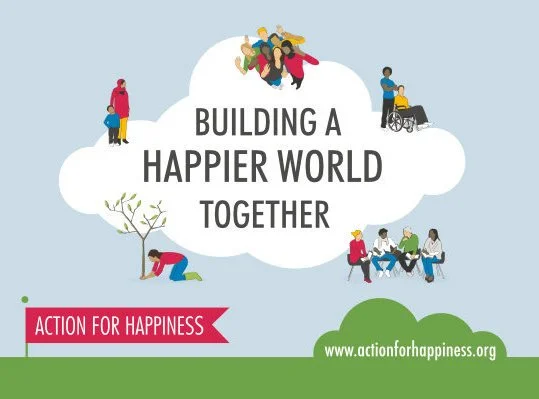
Blog
Positive Leadership
To lead people, we first need to be able to lead ourselves. Leading with the brain in mind helps us bring out the best in ourselves so we can do the same with others. Understanding how the human brain works and how we function at our best is both fascinating and critical if we want to continue to grow and improve as leaders.
Teaching students to think positively improves academic performance
We live in an age of prosperity not seen in any other period in history. Only 10 per cent of the world lives in poverty, 90 per cent of people are literate, and gruesome diseases like smallpox have been eradicated and majority of the world now lives in a democracy. Yet why in this age of material abundance, in wealthy countries like Australia do we have unprecedented levels of depression, anxiety and anger among our young people?
What actually makes us happy?
Let’s talk Happiness Pie! Why do some people seem happier than others?
What makes one person a “my glass is half empty” person and another one “my glass is half full” person? Not an easy question to answer, however I learned recently that 50% of our disposition is explained by a genetically determined happiness set point. It’s our DNA. Our circumstance is only 10% and the last 40% is through our intentional activities.
Start your day the mindful way!
Do you often wake up and rush to get on with your day?
Do you switch on your devices as soon as you can? Does your day end the way it began, frantic and scrambled?
Experiment with starting your day in a more mindful way and notice what you feel as a result. Pick a day and give these activities a try...
Work from your Strengths to maximise potential!
The Strengths Profile is an online assessment that gives you a unique profile revealing your realised and unrealised strengths, learned behaviours and weaknesses. Two-thirds of people do not have a meaningful awareness of their strengths. The Strength Profile will help you to understand, appreciate, and develop your own strengths, whilst supporting others to grow and achieve great things with theirs. Get your free Strength Profile here!
Well-being Assessment tools you can use right now!
As a Growth Coach, I use positive psychology to help others achieve their very best. Whether it be professionally or personally and in all areas of their life. To do this I use tools that have been developed, tried and tested by professional coaches, psychologists and researchers over many years.
What's the big deal about Positive Education?
I’m going to tell you a story. Get comfortable, settle in and listen carefully, for this is not fiction but a true story…
What IS Strength-based Parenting?
Many ask what exactly IS Strength-based Parenting Strength-based Parenting is a positive parenting model that encourages connecting your children with their natural strengths before attending to their faults and shortcomings. It is helping them in using their strengths to help them overcome their challenges.
Student Insight
I completed my Diploma in Positive Psychology and Wellbeing with The Langley Group. Recently they published a story about my journey. I am very proud of what I have been able to achieve so far, and my journey as only just begun! Thank you for being part of that journey.
Action for Happiness - The Dalai Lama can't be wrong!
The Keys to Happier Living program, developed for primary students, is based on the GREATDREAM model by Action for Happiness, ‘a movement for positive social change, with the goal of happiness for everyone …’. The model is underpinned by a wealth of research evidence from the field of Positive Psychology. The Dalai Lama is the Patron of Action for Happiness and endorses this Program.
Strength-based Parenting Style Helps Kids Become More Resilient.
Professor Lea Waters of the Melbourne Graduate School of Education published her findings on parenting styles and coping with stress. In the journal, Psychology, the author concluded that children who are raised through strength-based parenting grow up better able to deal with stress. The paper shares that children raised by parents who emphasize their strengths are more likely to develop better coping abilities.
Using Your Best to Make You Better
Robert Biswar-Deiner (a psychologist, author and all round guru in positive coaching!), talks about how in our everyday we look for the best in people. As kids we looked for the most athletic people to be on our team, we choose our friends and our partners because of what we like about them, not their faults or how they annoy us.
What are the costs of an expedient schooling system?
It is SO important to address wellbeing in the school setting. In these days of immediacy and lightning fast processes, there is little time to breathe, to refill the dopamine in our system to keep us going and take care of our wellbeing. From the Principal through to the students, we need to take care of our human resources otherwise we will have a broken system. The research is very clear that positive psychology programs significantly improve student wellbeing, relationships and academic performance. Being proactive to counter this burnout, is important.
Psychology vs Positive Psychology
What's the difference between Psychology and Positive Psychology? Well, nothing really! However, in the days when Psychology first became a ‘thing’, the focus was meant to be on ‘fixing’ the unwell but also in being proactive in keeping those that are well, always well and even better. However, the scientific funding was always associated with the sick and so the proactive aspect of psychology was lost – until relatively recently!
Positive relationships are contagious!
The power of positive relationships in education cannot be overstated. We are a service industry; therefore, relationships are the core of everything we do.
How good does it feel doing the things you're good at?
Have you ever noticed that when kids are good at something, they really enjoy doing it? They become completely engaged, are positive, more able to try new things, are more resilient and can problem solve more easily.
Positive communication in education.
When we talk about taking a positive approach, it doesn’t mean we have to be fluffy or gushing - that would be unauthentic and that is certainly what we don’t want! Positive communication is about building channels of communication that focuses on creating a positive ratio of 3:1.
Positive behaviour’s not just from kids!
Focussing on positive behaviours in the educational environment, is not just associated with students, but also includes behaviours of staff, leaders and the community. Often, we focus on the reactive rather than take the time to put the proactive practices in place. In order for the whole school to flourish, positive behaviours need to be understood and encouraged and negative behaviours discouraged through strong processes.
Positive schools for positive learning.
As our schools prepare for closing down for the festive season, it’s a great time to reflect on the year and begin planning for next year. It’s a fantastic opportunity to focus on the value of a positive approach to education. So, today’s post is the start of a series of posts devoted to discovering how a positive approach to education can be the most productive and effective way of maximising learning for all students.
You can learn to be an optimist! True!
Do you know people who always look on the bright side of everything? And do you know others who always see the bad? There are those who DON’T win the lottery and say “oh well, next time, gotta be in it to win it!” and there are those who DO win the lottery and say “What am I going to do with all that money? I’m gonna have people hanging around wanting to be my friend now!” Bit far-fetched, but you get my meaning.




















